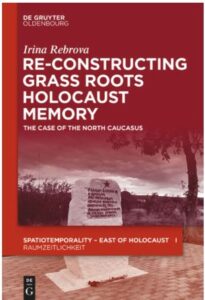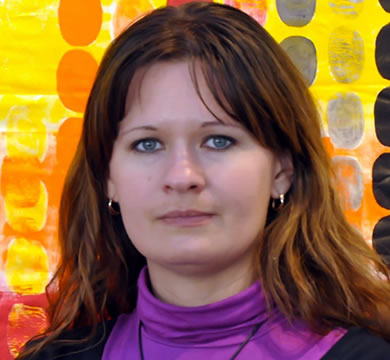
Dr. Irina Rebrova is a historian of the Holocaust and non-Jewish Nazi victim groups in the Soviet Union. She holds a Russian PhD and has received another PhD from the Center for Research on Antisemitism at the Technical University (TU), Berlin. She is the author of “Re-constructing Grassroots Holocaust Memory: The Case of the North Caucasus” (De Gruyter, 2020). Since 2022, she has served on the board of the German non-profit association KONTAKTE-KOНTAKТЫ that promotes intercultural tolerance, education about history, and financial support for the victims of the Nazi era in Eastern Europe, the Caucasus, and Central Asia. Her latest project, “Remember us…” concerned the history and memory of people with disabilities who became Nazi victims in the occupied regions of Russia during World War II. Currently, Dr. Rebrova is an Alfred Landecker Lecturer at the Center for Research on Antisemitism at TU Berlin.
PhD Institution: Technical University of Berlin
Research Topic during the Fellowship: Memory Politics about the Holocaust in the USSR and Russia (North Caucasus)
Current Position: Alfred Landecker Lecturer Technical University of Berlin, Center for Antisemitism

